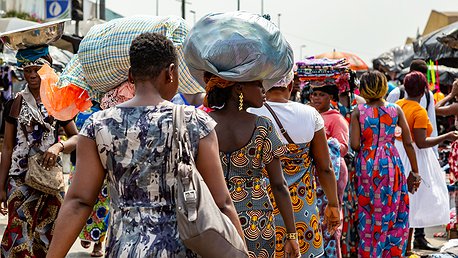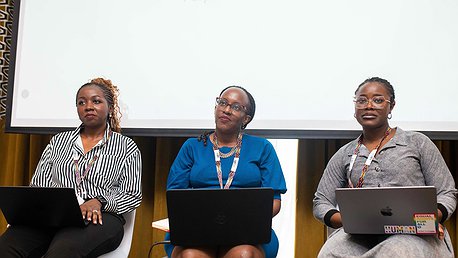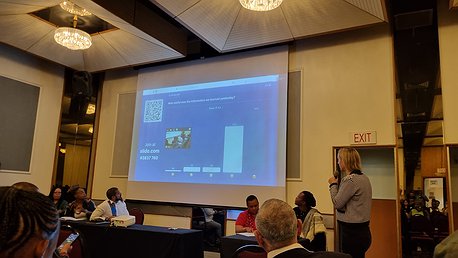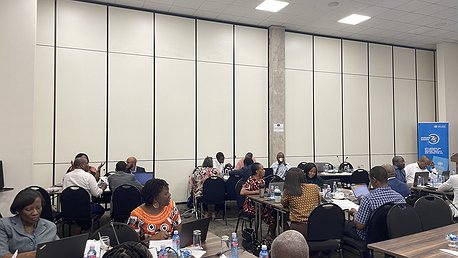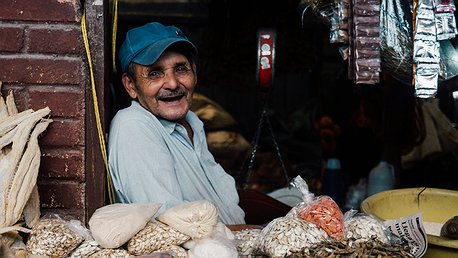Africa
Showing 98 results
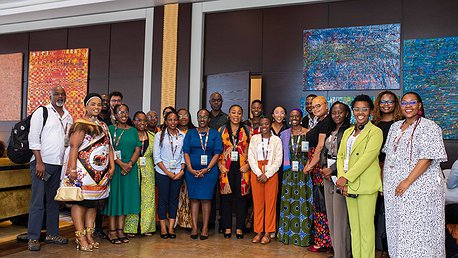
Justice is now: civil society calls for reparative climate finance for Africa
We joined allies at the Fifth African Conference on Debt and Development to advance calls for reparative justice and a new financial architecture that puts people and planet before profit.
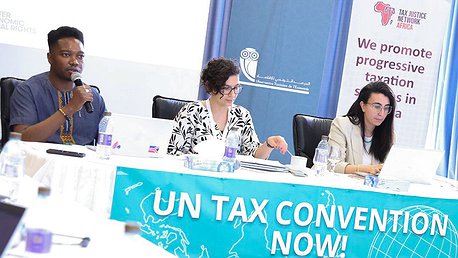
CESR joins African CSOs in rallying support for rights-based reforms to international taxation
CESR participated in a two-day workshop in Tunis on the role of African countries in defining global tax rules, hosted by the Tunisian Observatory of the Economy (OTE) and Tax Justice Network Africa (TJNA).
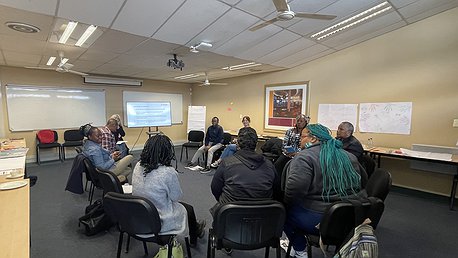
Publications, Reports & Briefings
Co-creating change: Shifting the Narrative on rights and the economy in South Africa
Collaborative insights and materials to redefine how we talk about human rights and the economy
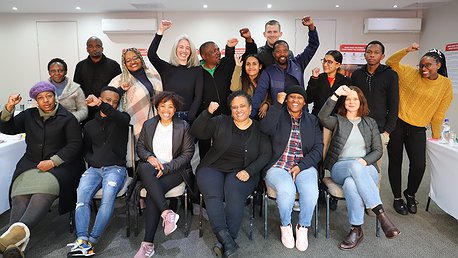
Exploring how to change mindsets about the economy in South Africa
Along a group of over 30 researchers, civil society organizations, and social movement activists, CESR is exploring how words and language can transform what we take for granted.

The right to health vs. the market: Rejecting the false dichotomy
A ruling from South Africa’s Constitutional Court shows how a Rights-Based Economy can give everyone the resources they need to prosper and guarantee their rights.

UN: Countries blocking the TRIPS waiver guilty of racial discrimination
After a complaint submitted by CESR and allies, the UN Committee on the Elimination of Racial Discrimination (CERD) called out Germany, Switzerland, the UK, and the US for violating international law and replicating colonial hierarchies by blocking access to COVID vaccine and treatment technologies.
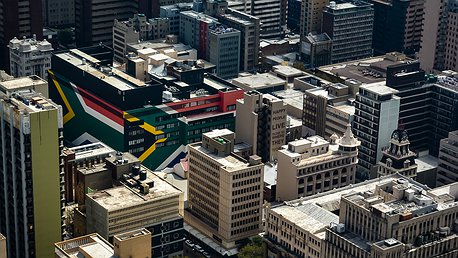
CESR and partners follow up on South Africa’s CESCR review
Our team and allies have been closely following the implementation of recommendations by the UN on economic, social, and cultural rights.

The right to health of miners in Botswana
This brief case study examines the use of OPERA, CESR’s research framework, to assess the right to health of miners and ex-miners in Botswana.
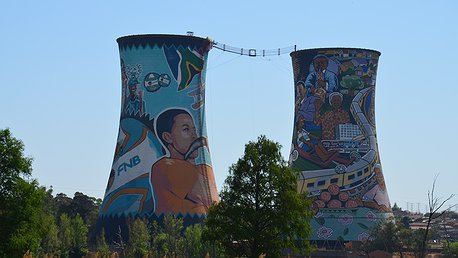
Economics & Human Rights in South Africa During COVID
In this collaborative series between the Institute for Economic Justice, CESR and SECTION27, we explore the link between economics and human rights during COVID-19 in South Africa.
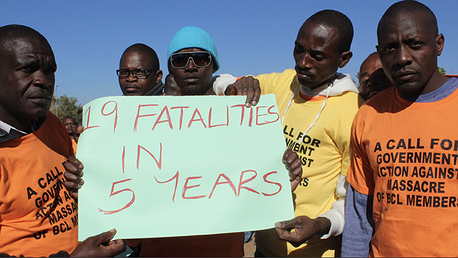
All Risk and No Reward for Botswana’s Miners
Drawing on two years of research and interviews with Botswanan miners, All Risk and No Reward describes how miners are denied access to quality healthcare and adequate and timely compensation for workplace injuries.
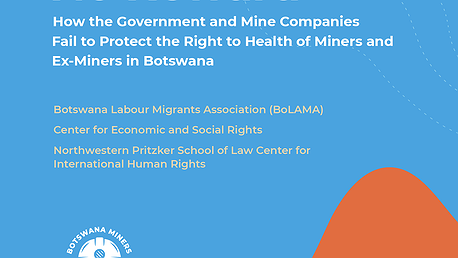
Publications, Reports & Briefings
All Risk and No Reward: How the Government and Mine Companies Fail to Protect the Right to Health of Miners and Ex-Miners in Botswana
CESR partnered with the Botswana Labour Migrants Association (BoLAMA) and Northwestern Pritzker School of Law Center for International Human Rights to investigate enjoyment of the right to health by the people who built Botswana’s wealth – miners and their communities.
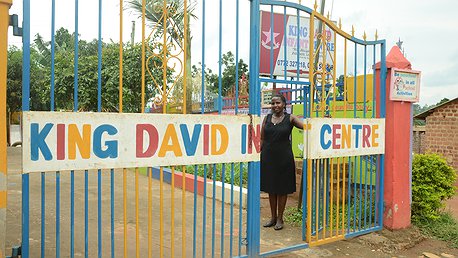
Confronting COVID: How Civil Society is Responding Across Countries | Uganda
Angella Nabwowe Kasule, of Uganda's Initiative for Social and Economic Rights, calls on the Ugandan government to allocate enough funding for rights-affirming public services.
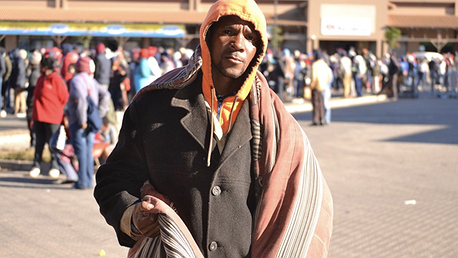
Confronting COVID: How Civil Society is Responding Across Countries | South Africa
Carilee Osborne and Pamela Choga of the Institute for Economic Justice discuss the South African government's inadequate response to COVID-19 and argue for a fundamental economic transformation that ensures human rights.
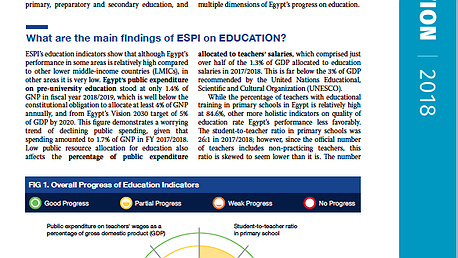
Egypt Social Progress Indicators: Education
Egypt’s performance in some areas of education is relatively high compared to other LMICs, but in other areas it is very low.
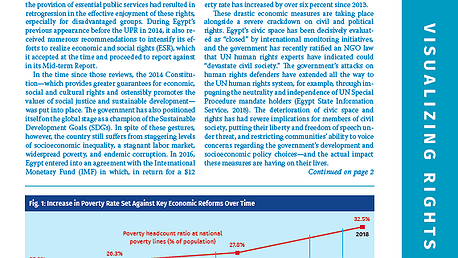
Egypt: Rights, Regression and Repression
This factsheet finds that Egypt still suffers from staggering levels of socioeconomic inequality, a stagnant labor market, widespread poverty, and endemic corruption.
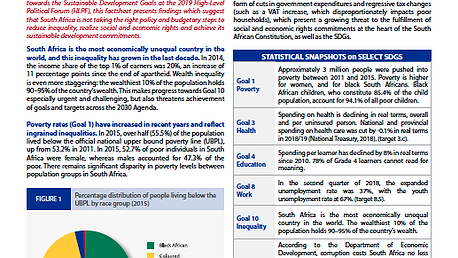
South Africa: Is Resource Mobilization Reducing Inequality?
As South Africa presents its review at the High-Level Political Forum (HLPF) in New York, a rights-based snapshot of obstacles and opportunities is put forward by CESR, the Institute for Economic Justice and Section 27.
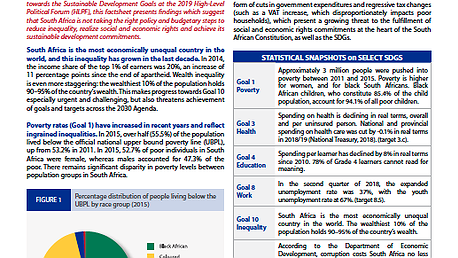
South Africa: Is Domestic Resource Mobilization Reducing Inequality?
This factsheet for the 2019 HLPF review suggests that South Africa is not taking the right policy and budgetary steps to reduce inequality, realize social and economic rights and achieve its sustainable development commitments.
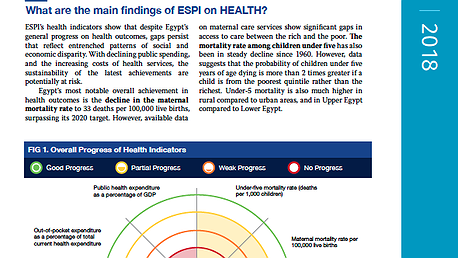
Egypt Social Progress Indicators: Health
Despite Egypt’s general progress on health outcomes, gaps persist that reflect entrenched patterns of social and economic disparity.

ESPI Annual Report 2018: Measuring Progress Towards Improved Wellbeing in Egypt
CESR's Egypt Social Progress Indicators project has published the first independent, systematic review of socioeconomic development in Egypt.

Meeting the Demands for Economic and Social Justice: Joint Submission on the Situation of Economic and Social Rights in Egypt
Fiscal austerity in Egypt has entrenched and worsened existing patterns of poverty, inequality and exclusion.
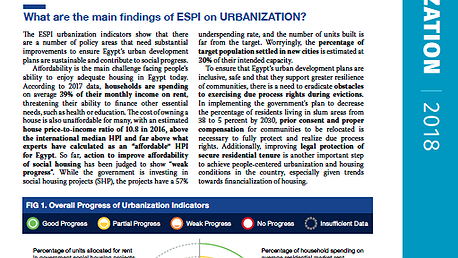
Egypt Social Progress Indicators: Urbanization
There are a number of policy areas that need substantial improvements to ensure Egypt’s urban development plans are sustainable and contribute to social progress.
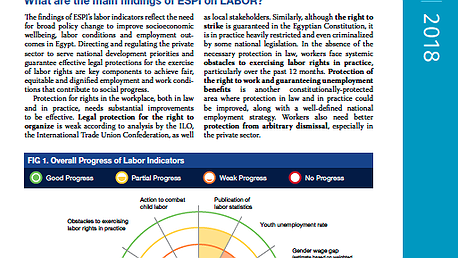
Egypt Social Progress Indicators: Labor
There is a need for broad policy change to improve socioeconomic wellbeing, labor conditions and employment outcomes in Egypt.
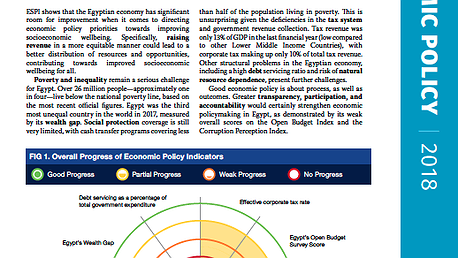
Egypt Social Progress Indicators: Economic Policy
The ESPI Factsheet on Economic Policy demonstrates that the Egyptian economy has significant room for improvement when it comes to directing economic policy priorities towards improving socioeconomic wellbeing.
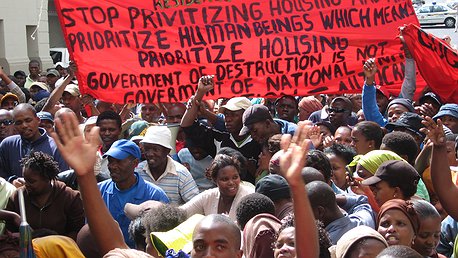
Legacies of apartheid: South African austerity perpetuates the inequalities of decades past
The South African government’s adoption of austerity measures now perpetuates many of the same inequalities that apartheid upheld many years ago.
%20_2.png.458x258_q85_box-0%2C2%2C703%2C397_crop_detail.png)
South Africa urged to end austerity measures amid "unacceptably high levels of inequality"
Civil society inputs documenting rights deprivations in health, education, tax policies were crucial to CESCR recommendation.
%20_1.png.458x258_q85_box-0%2C2%2C703%2C397_crop_detail.png)
UN Committee interrogates harmful austerity policies in South Africa after receiving compelling evidence from civil society groups
PRESS RELEASE: The UN Committee on Economic, Social and Cultural Rights grilled the South African government delegation on healthcare and education cuts, regressive tax changes and rampant corruption at country’s first review.
%20.png.458x258_q85_box-0%2C2%2C703%2C397_crop_detail.png)
Civil society organizations urge South Africa to end austerity measures and combat inequality
As South Africa presents its first human rights compliance report to the United Nations Committee on Economic, Social and Cultural Rights, CSOs call for a human rights-based approach to fiscal and economic policy, steps to tackle corruption and increased funding for healthcare and education.
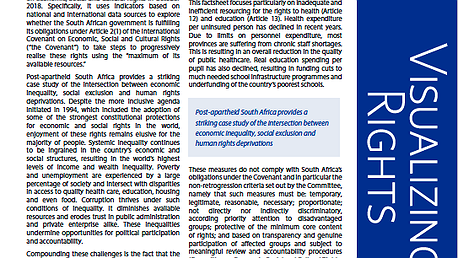
Austerity in the Midst of Inequality Threatens Human Rights in South Africa
Enjoyment of the rights laid out in the South African Constitution remains elusive for the majority of people.
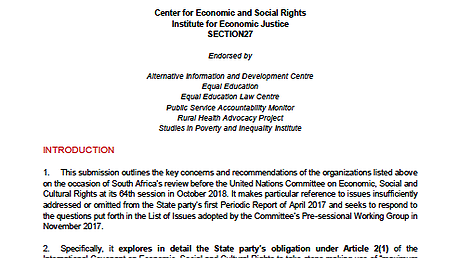
Joint Submission to the Committee on Economic, Social and Cultural Rights for South Africa’s first period report, 64th Session, October 2018
South Africa submission explores the State's obligation to use “maximum available resources" and argues against austerity.
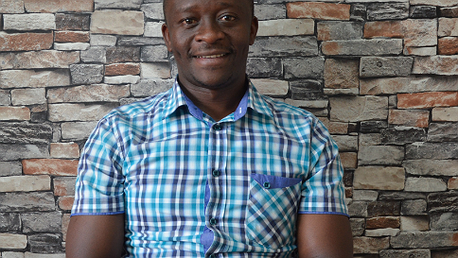
OPERA Stories: Advancing rights implementation in Kenya
This first blog in our “OPERA Stories” series highlights NGO Hakijamii's use of OPERA, our analytic framework, to support rights-claiming in Kenya.
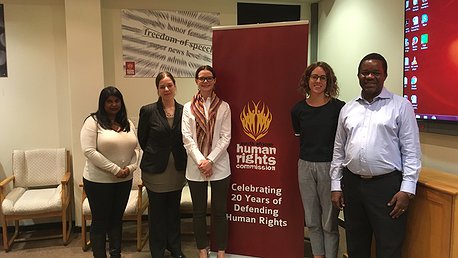
Developing human rights indicators for the SDGs in South Africa
May 4: Allison Corkery presented in Johannesburg on the role of national human rights institutions in developing human rights indicators for the SDGs.
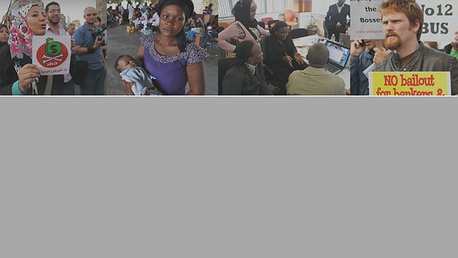
OPERA in Practice: Silenced Minds - The Systemic Neglect of Mental Health in Kenya
CESR and partners used OPERA to monitor the government's fulfillment of the right to mental health.
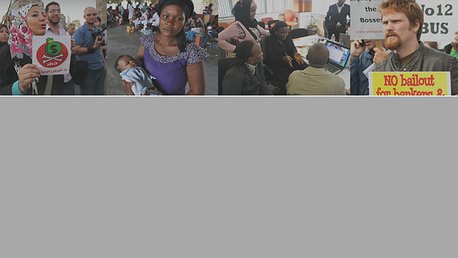
OPERA in Practice: Defending Reproductive Rights of Angolan Women
CESR and partners' submission to CEDAW about women's reproductive rights in Angola.
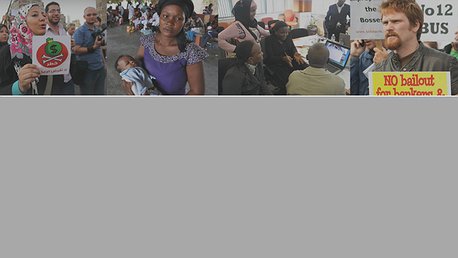
OPERA in Practice: Visibilizing Rights in Post-Revolutionary Egypt
CESR compiled a factsheet as a snapshot illustrating rights realization in Egypt in 2013.
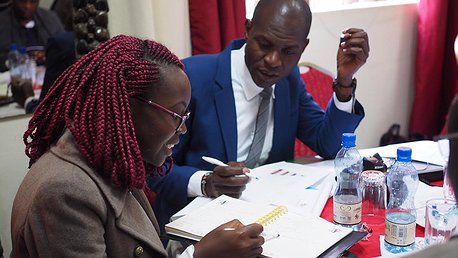
Kenya: Using OPERA to ensure UN recommendations are met
While UN human rights bodies are issuing stronger recommendations on ESCR, CESR works with national partners around the world to build up implementation tracking mechanisms.
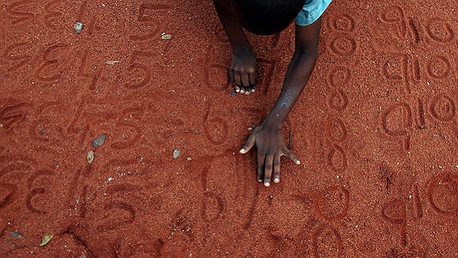
How Data Is Helping in the Struggle for the Right to Education in South Africa
Media: CESR's Allison Corkery writes in Open Society Foundations Voices blog about using OPERA tool with Legal Resources Centre to identify indicators and analyze data for tracking implementation in South African education rights case.
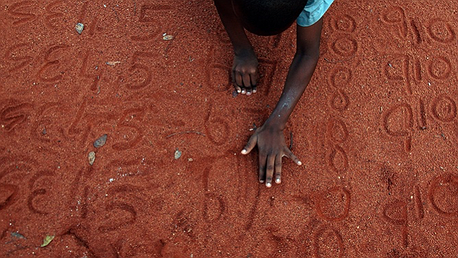
How Data Is Helping in the Struggle for the Right to Education in South Africa
CESR's Allison Corkery writes in Open Society Foundations Voices blog about using OPERA tool with Legal Resources Centre to identify indicators and analyze data for tracking implementation on South African education rights case.
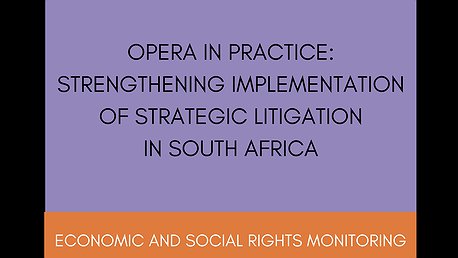
OPERA in South Africa: How Strategic Litigation + Strong Data = Better Implementation
In a new case study, CESR and the Legal Resources Centre reflect on a joint project piloting the use of the OPERA framework to analyze implementation in a case on the right to education in South Africa.
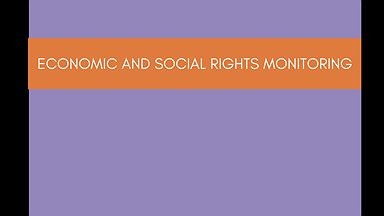
OPERA in Practice: Implementation of Strategic Litigation in South Africa
CESR's OPERA framework tracks South African court's mandate on education rights.
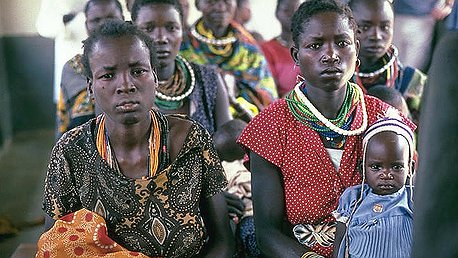
Uganda: Commitments to socio-economic reform must be followed up with resources and action
The government delegation to the UPR formally accepted 148 of the 226 recommendations.
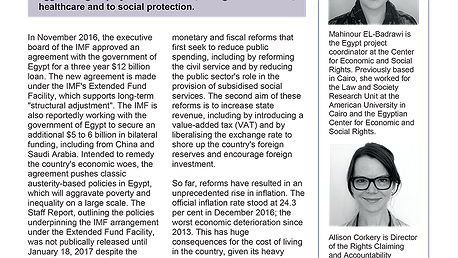
Egypt’s IMF deal: a huge price tag for human rights
The impacts of structural adjustment reforms associated with the loan raise strong human rights concerns, particularly for the status of economic and social rights.
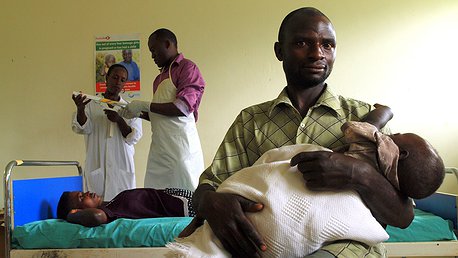
Uganda’s rights shortfalls highlighted by Human Rights Council
The country faced some tough questions over the shortcomings of its development policies when it came before the Human Rights Council last month.

Egypt cracks down on human rights while championing sustainable development at UN
Statement: CESR expresses deep concern over the recent verdict, and ongoing crackdown, against human rights defenders and organizations in Egypt.
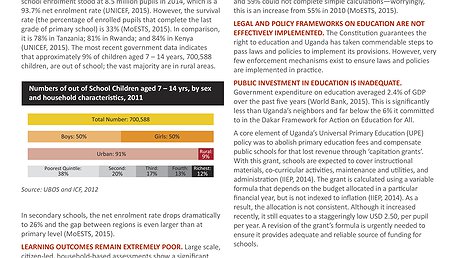
Development without rights? Uganda to face United Nations scrutiny
Graphic evidence of chronic deprivations of economic and social rights in Uganda has been presented in Kampala.
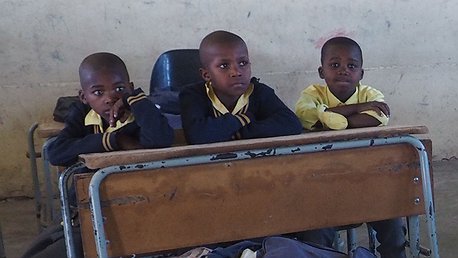
South Africa: court orders task team to tackle school furniture saga
CESR's partners in South Africa have secured a significant breakthrough after a court ordered the Minister of Basic Education to address furniture shortages in Eastern Cape schools.
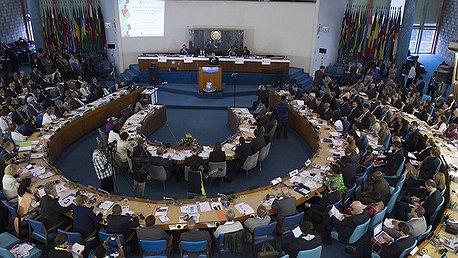
Global civil society demands stronger 'Addis Ababa Agenda'
Joint declaration: As world leaders meet in Addis Ababa, over 600 civil society organizations call for a stronger agreement on post-2015 financing for development.
Egypt's new government promised an economic revolution -- but Egyptians get more of the same
Foreign Policy Op-ed: As Egypt hosts a major investment conference, CESR's Allison Corkery and ECESR's Heba Khalil warn against pursuing the same failed development model of the past.
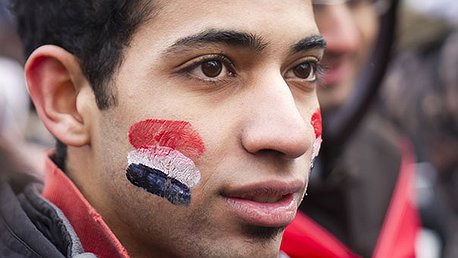
Amid crackdown, UN calls on Egypt to protect civil society space
Press release: The Human Rights Council's Universal Periodic Review mechanism has called on Egypt to put an end to repression of civil society voices.
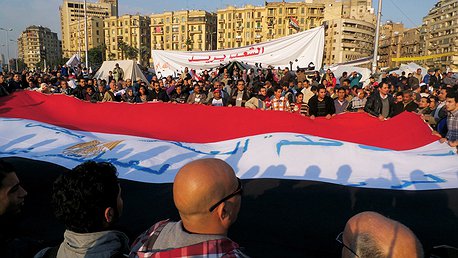
After threats, Egyptian organizations decide not to participate in UPR
Press release: The joint press release reproduced here has been issued by CESR's partners in Egypt in the light of their decision not to attend the country's appearance before the UPR.
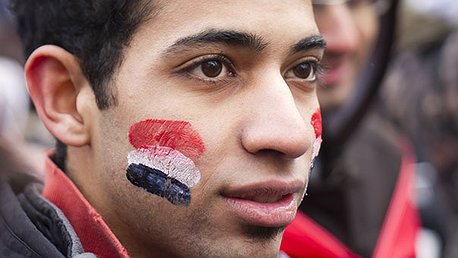
Egypt to answer to UN for deteriorating human rights conditions
Press release: Egypt comes before the Human Rights Council's Universal Periodic Review mechanism amid worsening deprivation and a crackdown on civil society space in the country.

CESR pays tribute to Odindo Opiata
CESR is deeply saddened by the loss of our ally and friend Odindo Opiata, one of Kenya's most important human rights defenders.
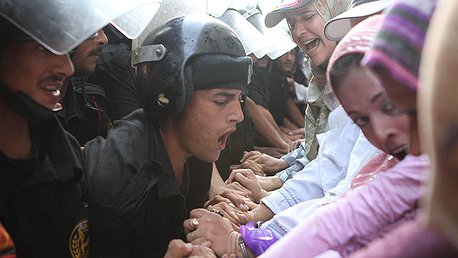
Security forces raid the ECESR and sexually harass women
Press release: This statement was issued by CESR's partner organization, the Egyptian Center for Economic and Social Rights, after its offices were raided by security forces on Thursday 22 May.
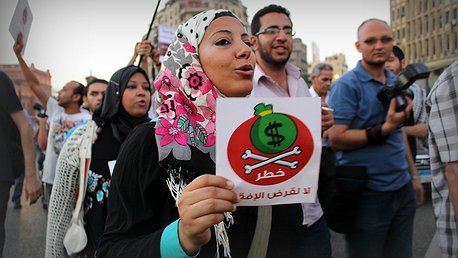
Egypt must stop penalizing the poor
Op-ed: Writing in Foreign Policy, CESR's Allison Corkery and the ECESR's Heba Khalil unpack the economic and social rights issues at stake in Egypt's elections.
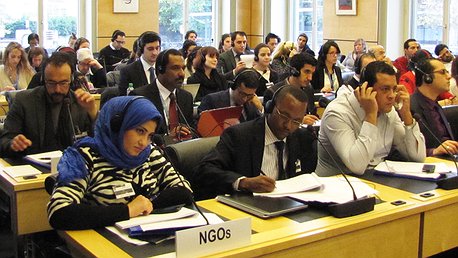
130 organizations join forces at UN to confront Egypt's human rights crisis
Press Release: As presidential elections draw near in Egypt, a large coalition is taking the country to task before the Human Rights Council's Universal Periodic Review.

UN criticizes Egypt's rights record and calls for increased investment in ESCR
Press release: The United Nations has raised serious concerns over shortcomings in ESCR in Egypt.
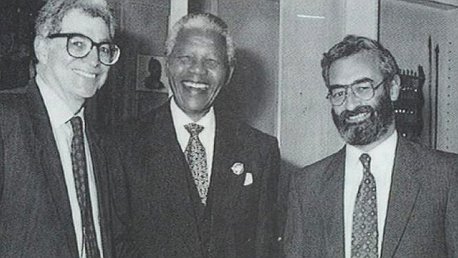
CESR pays tribute to Nelson Mandela
CESR Board member Geoff Budlender, who served as Director-General of the Department of Land Affairs during Nelson Mandela's presidency, pays tribute to the late South African leader.
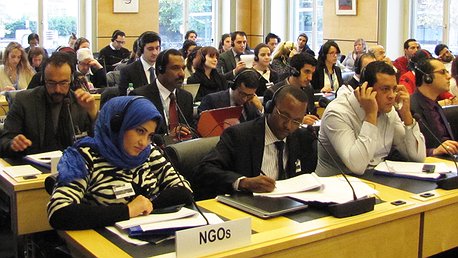
Egypt's rights record found wanting at UN
Press release: The UN Committee on Economic, Social and Cultural Rights has firmly criticised Egypt's failure to address the social injustices and marked inequality that fuelled the 2011 revolution.
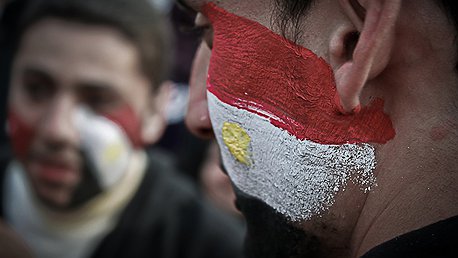
Egypt to answer to UN body for ongoing social rights crisis
Press release: CESR and its Egyptian partners are in Geneva this week as the North African country makes its first appearance before a UN human rights treaty body since the Arab Spring revolution.
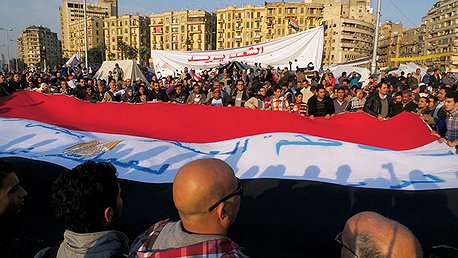
Egypt: No freedom without social justice
Despite being one of the nations at the heart of the Arab Spring, uncertainty and political tension continue to bedevil Egypt two years after the fall of President Hosni Mubarak.
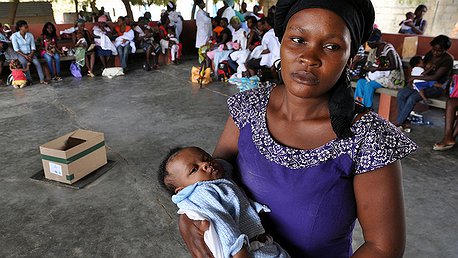
UN Committee calls on Angola to tackle maternal health failings
The United Nations expert body on gender discrimination has called on Angola to address the poor protection of maternal health and reproductive rights in the country.
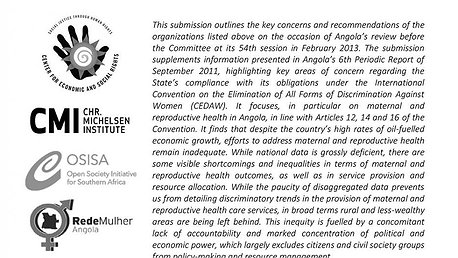
Taking Angola's maternal health record to task at the UN
As oil-rich Angola appears before the Committee on the Elimination of Discrimination Against Women, a new report throws light on maternal health failures in the country.
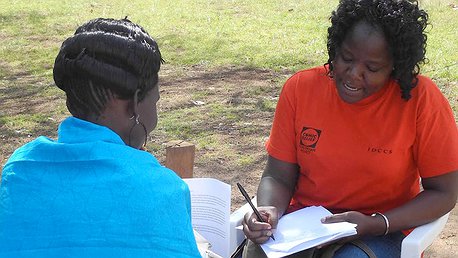
Kenya rights body issues call on reproductive health
In May 2012 the KNCHR released the findings of its national public inquiry into sexual and reproductive health.
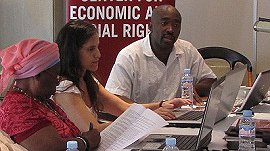
A trail of hope from Geneva to Equatorial Guinea: using the UPR for national level impact
CESR is providing support to Equatoguinean human rights defenders eager to make use of the UPR.
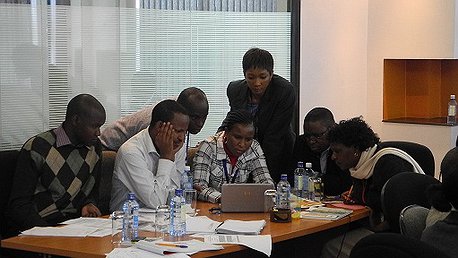
Strengthening protection of economic and social rights in Kenya
CESR has been supporting KNCHR pioneering work on economic and social rights.
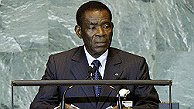
Press release: UNESCO Must Stop Discredited Prize
CESR has joined forces with eight other human rights organizations to confront moves to resurrect the discredited UNESCO-Obiang Science Prize. The government of Equatorial Guinea is hoping to bring back the award honouring dictator Teodoro Obiang, which was suspended last year.
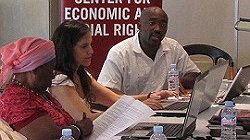
Supporting Equatorial Guinea's embattled rights defenders
Despite spectacular rates of growth, the majority of Equatorial Guinea's population continues to live in poverty. On Monday 12 and Tuesday 13 September CESR joined forces with EG Justice and several Equatoguinean NGOs to stage a capacity-building workshop in Madrid.

Political failures behind Horn of Africa crisis
Political indifference is as much to blame as drought for the spectre of famine's return to the Horn of Africa. Luke Holland explores the factors contributing to the crisis currently gripping the region.

Nigeria: petition to African Commission on Human and Peoples' Rights
In March 1996, CESR and SERAC jointly submitted a legal communication to the African Commission on Human and Peoples' Rights.

African Commission's Decision
At its 30th Ordinary Session held in Banjul, The Gambia from 13th to 27th October 2001, the African Commission examined the above mentioned communication and found the Federal Republic of Nigeria in violation of Articles 2, 4, 14, 16, 18(1), 21 and 24 of the African Charter on Human and Peoples' Rights.

Manuals & Guides, Publications
New primer aims to strengthen monitoring by the Kenya National Commission on Human Rights
New primer to enable more effective monitoring of economic, social and cultural rights in the East African country.

CESR condemns assault, coercion and threats of human rights workers and journalists in Egypt
Crackdown campaign betrays an apparent attempt to stifle the flow of information, silence independent reporting and to eliminate potential witnesses to further government repressions that may occur in the coming days.
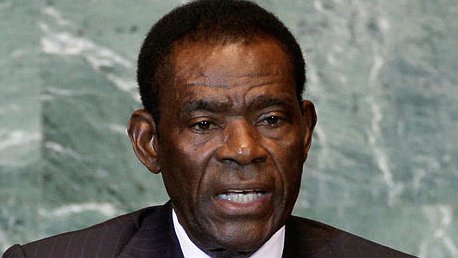
UNESCO: Pull Obiang Prize
The United Nations Educational, Scientific, and Cultural Organization should cancel the Obiang Prize at its next session in October 2010, the Center for Economic and Social Rights and 95 partner groups said in a letter sent to UNESCO Executive Board members today.

Oil Spills You Never Heard Of
Are we only outraged about an oil spill that we can see? (June 2010)
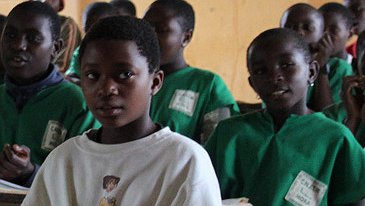
Supporting Equatorial Guinea’s embattled rights defenders
Despite high rates of economic growth, most Equatoguineans continue to live in poverty.

UNESCO Must Stop Discredited Prize
Equatorial Guinea Seeks to Resurrect UNESCO-Obiang Science Prize.

Why UNESCO should just cancel the Obiang life sciences prize
"UNESCO is allowing itself to be used to burnish the unsavory reputation of a cruel and corrupt despot." --Tutu Alicante, EG Justice
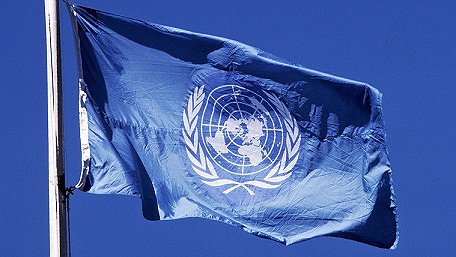
UNESCO: End Alliance with Corrupt Dictator
UNESCO-Obiang Science Prize Funded by Suspect Money from Equatorial Guinea Leader.
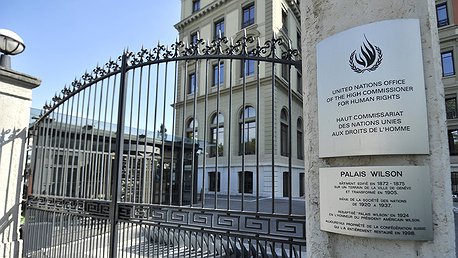
Equatorial Guinea reports to Human Rights Council
Government and NGOs present different pictures before UN Human Rights Council in Geneva.
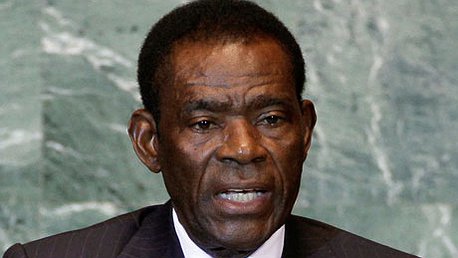
UNESCO: ‘Dictator Prize’ Suspension Only a Temporary Fix
Prize honoring Equatorial Guinea leader should be cancelled
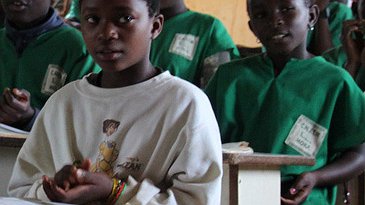
Equatorial Guinea: Submission to Universal Periodic Review
CESR individual submission to the OHCHR on the occasion of the sixth session of the Universal Periodic Review, December 2009.
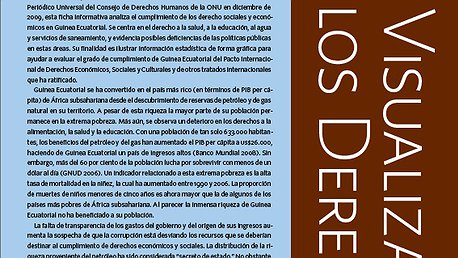
Hoja Informativa sobre Guinea Ecuatorial
Guinea Ecuatorial se ha convertido en el país más rico en renta per capita del África subsahariana.

Equatorial Guinea Factsheet
This 2009 factsheet focuses on the rights to health, education, water and sanitation.
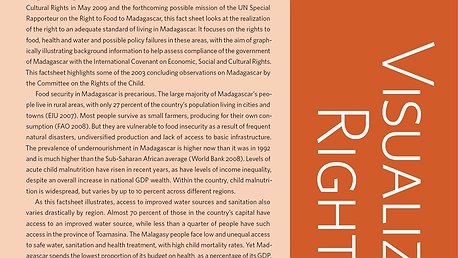
Madagascar Factsheet
CESR's 2009 factsheet on Madagascar provides a graphic overview of the rights to food, health and water.
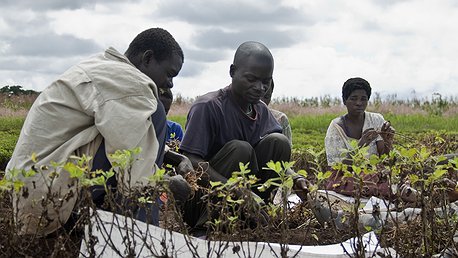
Malawi government works to fulfill the human right to adequate food
Malawi cuts child malnutrition by 73 percent in just six years

Equatorial Guinea: resource cursed
An article in Foreign Policy demonstrates how Equatorial Guinea's oil is hurting rather than helping
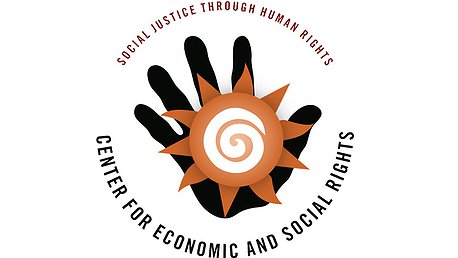
Egypt's first arrest in enforcing ban on Female Genital Mutilation/Cutting
Egypt made its first arrest of someone to violate its complete ban of female genital mutiliation/cutting (FGM/C), Al Arabiya reports.
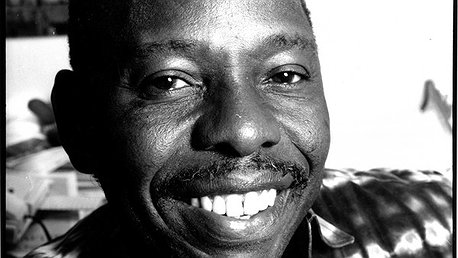
Wiwa v Shell settlement just one small step toward ending corporate impunity
Shell's pay-out in the Ogoni case has been rightly hailed as a victory, but leaves impunity for rights violations unresolved (June 2009).

Ogoni 9 trial against Shell to begin April 27 in New York
The case related to killing of the 'Ogoni 9' and other serious human rights abuses committed in the Niger Delta region of Nigeria in 1995 will begin in April after years of litigation.
.jpg.458x258_q85_box-0%2C33%2C640%2C394_crop_detail.jpg)
Chevron wants $500,000 from Nigerian villagers who sought justice in human rights case
Lawyers for the villagers had sought to hold the oil giant responsible for the 1998 shooting and mistreatment of protesters by Nigerian soldiers at an oil rig.
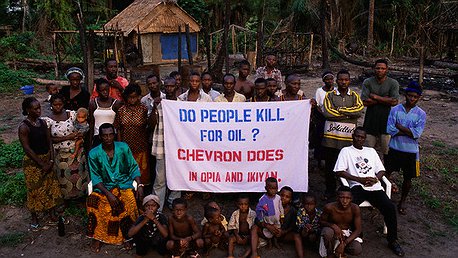
Chevron wants $500,000 from Nigerian villagers who sought justice
Lawyers for the villagers sought to hold oil giant responsible for 1998 shooting and mistreatment of protesters (February 2009).
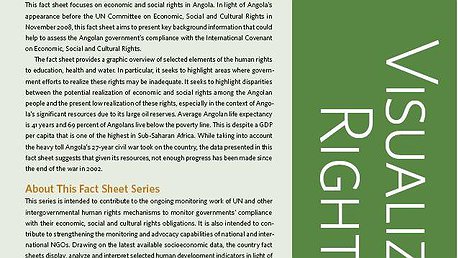
Angola Factsheet
Although Angola has one of the highest GDP per capita in Sub-Saharan Africa, average life expectancy is 41 years and 69 percent of Angolans live below the poverty line.
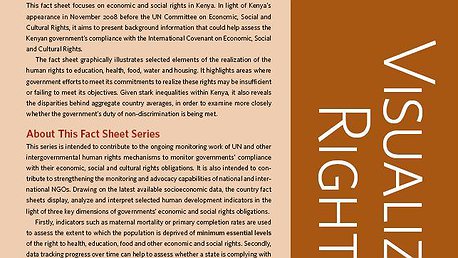
Kenya Factsheet
Sharp disparities between provinces suggest the government's duty of non-discrimination is not being met.
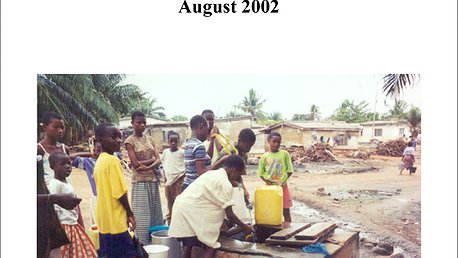
Publications, Reports & Briefings
Ghana: Privatization and Water Sector Reform in Ghana
CESR and its allies conducted a fact-finding mission to examine impacts of the privatization of water in Ghana.
